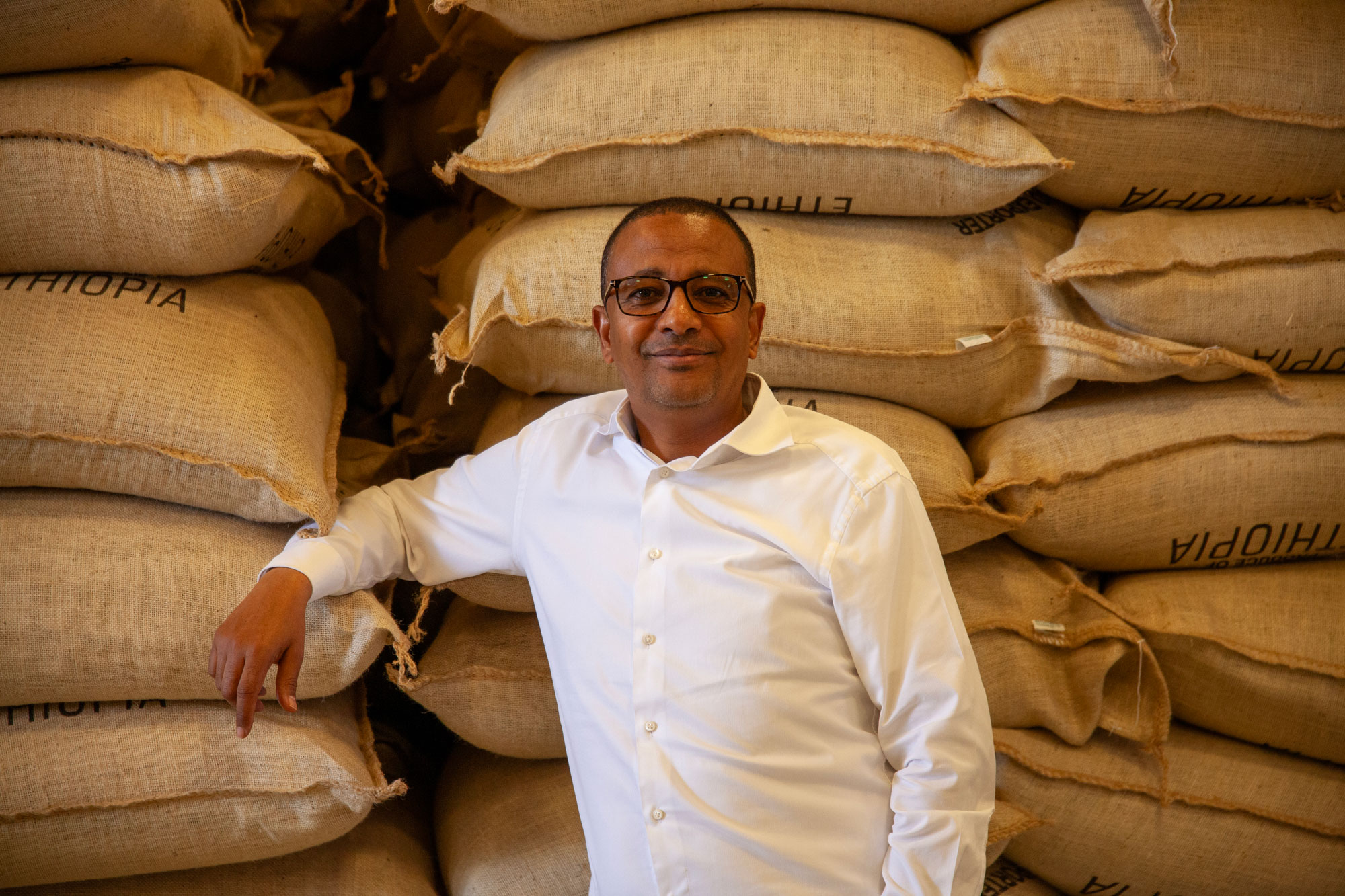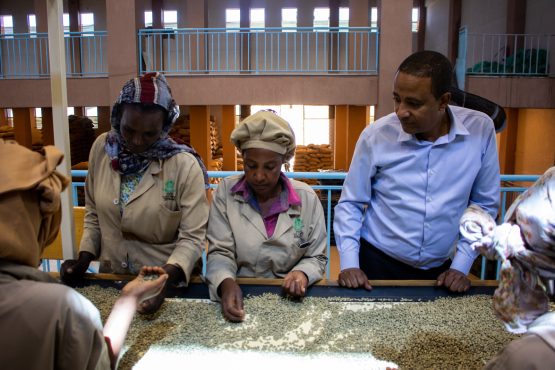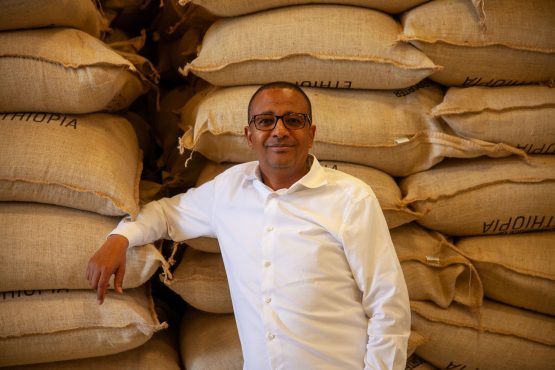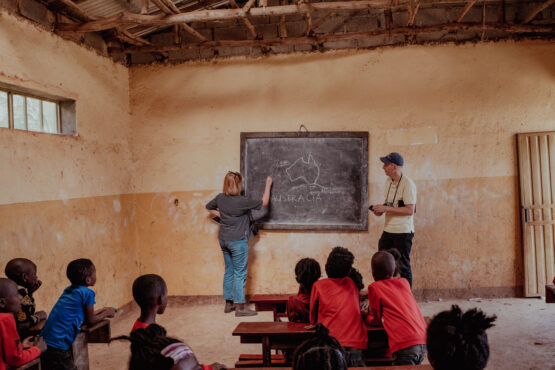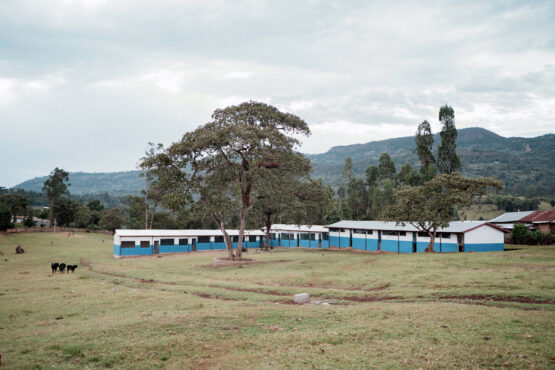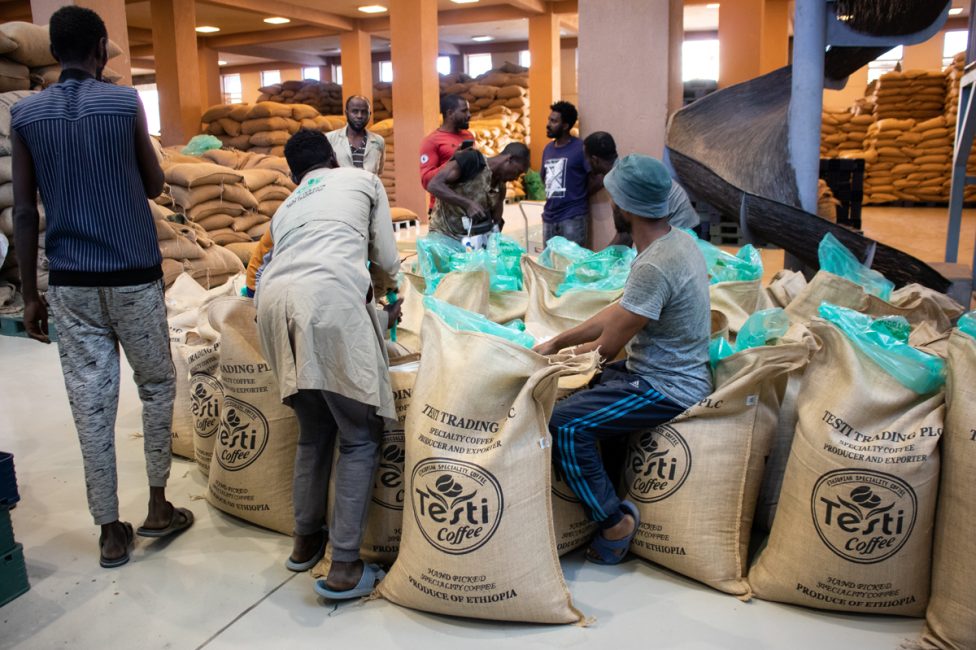Meet Faysel Abdosh Yonis
Published 21 Jun 2024
Since 2018, our Ethiopian export partners Testi Specialty Coffee have supplied us with delicious and distinct lots from their processing sites, which are located across the country’s many growing regions. We adore working with Testi, who share a quality focused approach and commitment to supporting and resourcing the farming communities who grow the coffees we love so much.
As the founder and director of Testi, Faysel Abdosh Yonis is a key player in our supply chain, and someone who we admire and respect enormously. During our most recent visit to Ethiopia, MCM took the opportunity to sit down with Faysel and learn more about his philosophy on coffee trade, and the social initiatives Testi have implemented in remote growing regions.
MCM: Could you tell us a bit about how you started Testi?
Mr. Faysel Abdosh Yonis: First of all, my name is Faysel Abdosh, the owner of Testi Coffee. I was born in the eastern part of Ethiopia, in Harar, where my father had a coffee farm. I grew up in the region of Bench Maji. This is a region that grows a lot of coffee, which is why I chose to focus on the coffee market.
When I was in high school, I started buying coffee from farmers — ten, twenty kilos — and I would sell it to suppliers. That was my life up until fifteen years ago. Before I started exporting through Testi Coffee, I would sell coffee to exporters. And that’s how it all started.
What was the process like when you founded Testi? How did you establish an exporting company?
Fifteen years ago, in 2009, I was thirty. We began by exporting to Saudi Arabia for three years, before deciding to focus on specialty coffee. We opened the first specialty-focused washing station in Guji, named Jigesa, and three years later we were able to open Hadeso nearby. Now we have 28 sites — It’s a big accomplishment and we feel very proud.
What appealed to you about coffee? And why do you think you’ve stayed in the industry?
Coffee is my life, that’s why. I love the coffee business. I love the countryside. I was born there, and so I love being around coffee farms.
One of the things we love about Testi is that it’s a family business. It’s been so nice to meet your son during this trip and to have spent the week with your nephew, Yisak. We also love meeting longterm employers at your processing sites and the dry mill.
Can you talk a bit about how you’ve built such a positive, family-driven dynamic at Testi?
We’ve done that by instilling a sense of respect among colleagues. For example, last week someone’s mother was sick, so we reached out and asked, “What do you need?” She told us she needed medicine, so we organised that for her; we bought it for her. All of the company’s colleagues are family. I don’t see myself as the boss, just their leader. We’re all a family.
How many people are on the team at Testi now?
In Addis, around 150. At the washing stations, during the harvest, around 5,000.
Outside of the culture at Testi, you’re very passionate about promoting social projects and initiatives among the communities who deliver to the company’s washing statons. Could you tell us a little bit about them?
Of course! As you know, we work with coffee farmers and we know their conditions very well. Some regions don’t have clean water or schools for the kids to attend. At Testi, we believe they should have those things. Speaking honestly, seeing these conditions makes me really sad — that’s why we support the growers we work with, especially their kids. We support kids because we want them to receive a good education, so that maybe the grow up to become doctors or pilots, etc. That’s why we’re very focused on promoting and funding schools.
You’re really thinking about the future of those producing communities. How do you set up school projects? Is it an initiative with the local government?
Yes, it’s always done through communication with the county government. We’ll get in touch with thema and ask directly, “What do you need? A pharmacy? A school?” And if they tell us they need to build a school, we ask them to free some land for us to use and then communicate with coffee buyers who support our projects, like Blessed Bean (a Korean roaster). With that support, we can invest in construction a school building. We have more plans to continue this in the future.
We have also built fresh water wells, or fountains, for communities. These are small, but we have bigger water projects in the works for the future as well.
Can you tell us how the premium system works for producers?
Outgrowers (who deliver fresh cherry to Testi’s processing sites) get a premium above the annual market rate set by the government. Farmers receive their first pay upon delivery, which is higher than the minimum rate, incentivising them to bring high quality cherry. Farmers who are registered with the washing station also receive a second premium payment three months later or after the lot has been sold, based on what they have delivered, usually around June or July (during the Ethiopian winter). This is when they would be preparing for the next harvest and they are running low on funds.
Is cherry selection done at a farm-level, or at washing stations?
It happens at both. First, our agronomists visit farmers at their properties to assess the ripeness of their cherry. If it all looks red and ripe, it gets collected for the washing station and farmers receive their first payment. Our agronomists know the farmers very well, so they know whose plots perform the best.
How many agronomists work for Testi?
In Sidama, for example, we have four agronomists. They all have their own assistants and field technicians who travel around the regions.
Has the industry changed a lot since Testi Coffee was first founded, fifteen years ago?
Yes, it has changed. Previously, all buying was done through the ECX. After the government changed the laws allowing buyers to go directly to suppliers, we decided to build our own washing stations. Before this change, coffee quality was mixed — sometimes you didn’t know what you were going to get. Now that we buy cherry directly from farmers, the coffee industry is different. It’s been a positive change.
Thinking about what you have achieved over fifteen years, what makes you feel most proud?
My proudest achievement is delivery good quality. When you are happy with our coffee, we feel proud.
Do you have any messages for Australia’s coffee community?
Enjoy our coffee — that’s it!
